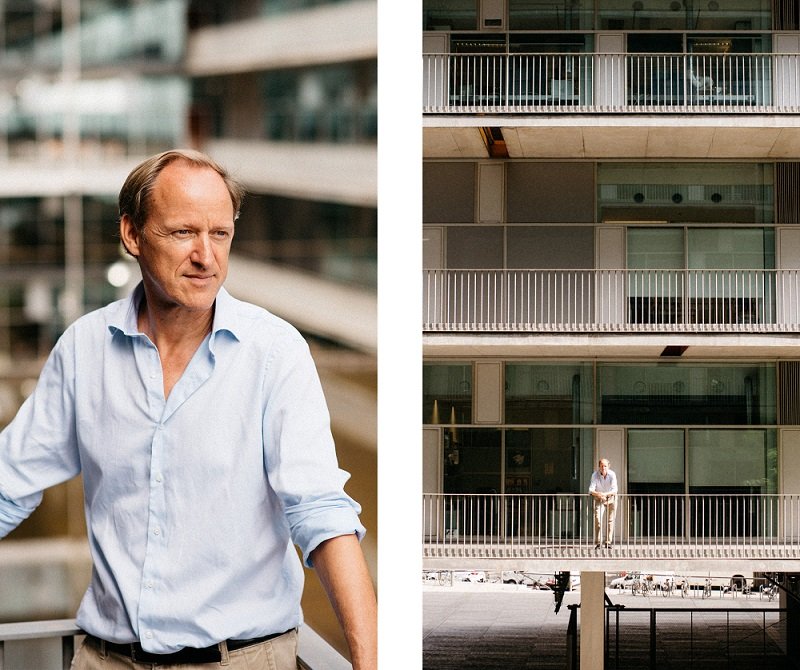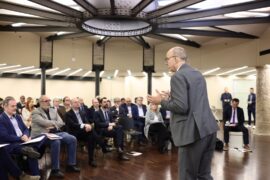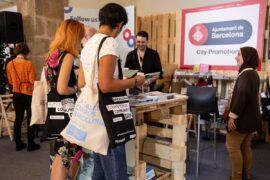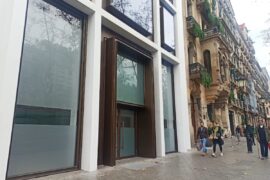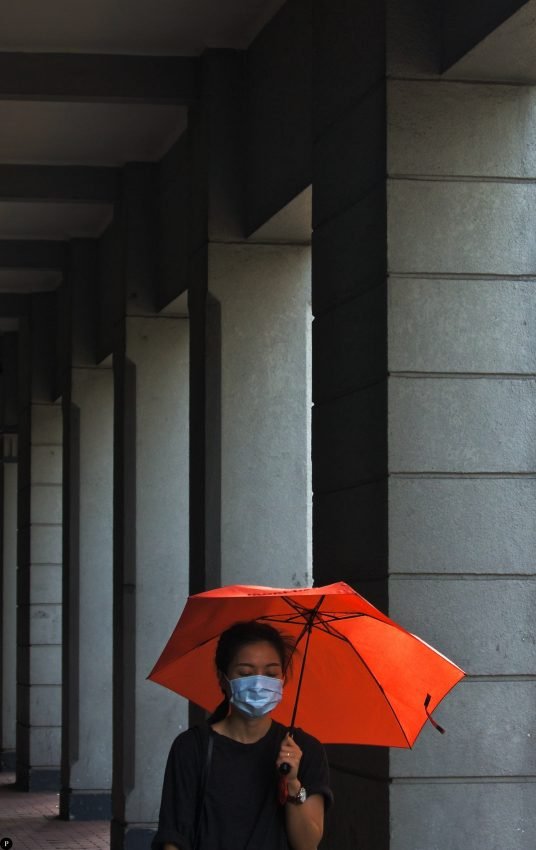Congratulations for the award, Mark! Here it says that you have won it for your great contribution to environmental epidemiology. And that means…?
I tell my children that my job is to make a city better so that there are more green areas and they can ride a bike. And since they love biking, they tell me I’m doing a good job! [laughs].
What do you think that impressed the jury most?
The study of how urban design and transportation planning affects health. It is clear that, if cities invest on roads they will have more cars, more pollution and more noise, which makes us sick and kills us. In addition, I think they appreciated that my team and I not only investigated, we also went out to talk to the people: with the person in charge of mobility, the one of green spaces, with the schools, the citizens… We have a certain activism, which is committed to the community.
Wait, did you say it kills us?! How many deaths are we talking about?
Some 3,000 premature annual deaths, only in a city like Barcelona, due to bad urban planning and transport.
Whose consequences are…
First, the lack of exercise of the population, causing almost 1,000 of those 3,000 premature deaths. If you do not plan a city so that people can walk or ride a bike, you will have sedentary citizens. Second, air pollution, causing 659 of those 3,000 deaths. And thirdly, noise pollution, responsible for 599 premature deaths out of every 3,000.
A recent ISGlobal study says that 38% of childhood asthma is attributed to pollution!
Yes, the metabolism of children is more sensitive, because they breathe faster in relation to their body mass. They are the most affected along with the elderly.
What are the three things that you would ask the authorities in order to stop the debacle?
Remove cars, allow more bike lanes and enable more green spaces. Did you know that cars in Barcelona occupy 60 or 70% of public space? If we could reduce that space, we could plant trees. Look, for example, Via Laietana: we do not need that street! That street should be closed to transit and establish a park instead. As for Ronda Litoral, we would have to do it underground and design a nice square on top.
And what can citizens do to avoid all those diseases caused by the current urban environment -cancer, arrhythmia, obesity, diabetes, autism, hypertension…- that you explain on your website?
First, adopt car sharing. Did you know that, when you have a car, 96% of the time it is parked? It’s crazy. You lose money. Also, you don’t need it if you live in a well-connected city. And afterwards, go by bike and walk more. We should not see it as a waste of time. You don’t waste time. It is good for you. Your body needs it!
 Ok, but eliminating cars is not so easy… The restriction of traffic in the Gran Vía of Madrid or Barcelona’s superilles were very controversial.
Ok, but eliminating cars is not so easy… The restriction of traffic in the Gran Vía of Madrid or Barcelona’s superilles were very controversial.
But we can prevent 1,000 premature deaths a year! Who does not want to get that? Look, what people do not like are changes: “Well, one cannot park here anymore”, or “I cannot do this or that anymore”. But then, once it is implemented, they say: “Ah, ok, it’s better, now it’s quieter”. It only takes a little time to get used to. The superilles [blocks of buildings and streets in which transit has been reduced] are great! I dedicate an entire chapter in my new book.
If conclusions are so clear, what prevents measures from being taken?
Since people usually are not fond of changes, politicians are afraid that if they take the decisions, they will lose support. In addition, the car industry moves a lot of money. Selling bicycles is not so profitable.
Are you optimistic about the future?
Yes! In 20 years, I think there will be a lot less cars because people will share them. And we will see greener cities. Only political will is needed.
And if we were to dream, what would be your ideal city like?
Very green, with lots of trees, solar panels on all the roofs and no cars. We need cities for people, not for cars!
Interview: Ana Portolés
Photograph: Mònica Figueras
You can read more stories like this on ALMA, the social social media, a digital space devoted to the social field, which brings a new look at the present and the future of society, from an optimistic and diverse point of view, and from all the initiatives that “la Caixa” Foundation promote.


